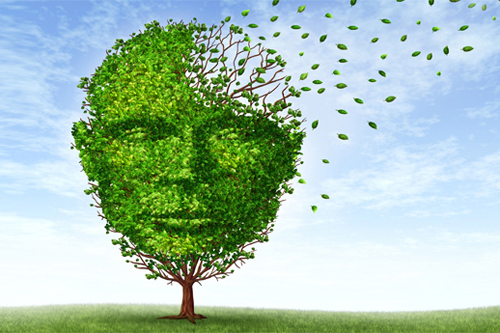 Ever since I was young, I’ve been interested in memory. As a child, I remember reading in Ripley’s Believe It or Not about children who had memorized the Bible at age eight and other astounding feats, and I wondered whether I could match such accomplishments of memory. At Boston Latin School, one of the arcane requirements was “recitation”: we had to memorize something, get up in front of the class, and recite it. One of the perennial favorites was Edgar Allan Poe’s “Eldorado.” It met the minimum 20-line requirement and all the lines were short. But I memorized and recited the entire 2,209 words of “The Tell-Tale Heart.”
Ever since I was young, I’ve been interested in memory. As a child, I remember reading in Ripley’s Believe It or Not about children who had memorized the Bible at age eight and other astounding feats, and I wondered whether I could match such accomplishments of memory. At Boston Latin School, one of the arcane requirements was “recitation”: we had to memorize something, get up in front of the class, and recite it. One of the perennial favorites was Edgar Allan Poe’s “Eldorado.” It met the minimum 20-line requirement and all the lines were short. But I memorized and recited the entire 2,209 words of “The Tell-Tale Heart.”
For most of us, our brains go through an unconscious process known as active forgetting: sifting through that vast quantity of mere data, separating out what is significant from what is not.
As I grew older, I found that those who possessed these great mnemonic skills almost always suffered substantial mental or emotional deficits. The capacity for exceptional memory was often found, for example, in those with autism spectrum disorder or other neurological conditions. Perhaps the most famous of these was Kim Peek, the inspiration for Rain Man.
Others, those with what are called eidetic memory—who can store every bit of information, with no ability to filter it at all—find themselves overburdened with their seemingly limitless recollection. Past and present, dreaming and waking, all blur together. One woman described it as having a movie of her life running in her head constantly with no ability to turn it off.
Even those who had no specific neurological deficit didn’t seem to do much with their enormous gift of memory. Yes, one might be able to calculate the value of pi to 22,000 digits, but that didn’t extend to any skill beyond itself. The savant artist Stephen Wiltshire could look at a scene once and then paint it with perfect precision—but that was all he could do.
Is it possible to remember too much?
My perception was rewired when I read a study about memory and these special people in a science journal a number of years ago (I can’t remember exactly when; my own memory fails). It indicated that, for all of us, our memory is stored initially in a raw form. Everything is simply dumped in, complete and unedited.
Our brains have evolved to sort through that ceaseless stream of sensory input and thoughts and feelings as it comes into our memory and find what is most important to all of us—and that is meaning.
All of us have the capacity to remember vast quantities of information. We do it all the time. Each of us, in our selected fields of interest, may possess voluminous quantities of information—people, places, facts, details by the tens of thousands.
But ask most people to name the 50 states and it will be a struggle—unless, of course, that information falls within their selected field of interest.
Our brains have evolved to sort through that ceaseless stream of sensory input and thoughts and feelings as it comes into our memory and find what is most important to all of us—and that is meaning.
Without active forgetting, we cannot sort out what matters from what doesn’t. Our brains are designed by nature to distinguish between what is important to us and what isn’t, to hold on to the former and let go of the latter.
As for “The Tell-Tale Heart,” I can still remember the first few lines. Pretty much all the rest has faded, as have so many things from all those years ago. I suppose it makes sense. As the decades hurry by, the things that matter to us change. Some will always remain vivid in our memories, marking emotional and historical guideposts in our lives. The rest passes away.




2 Comments
Daniel Bullen
I sometimes wonder whether good memory was biologically selected against—whether people with good memories for personal slights and offenses would always be feuding, consuming all their energies in revenge. I love the idea of active forgetting, and wonder whether it’s related to other virtues like forgiveness, or diplomacy, which is ‘official’ forgetting. It must be for a purpose that the attention we can give is smaller than a dinner party—where it’s hard to follow even two conversations at a time.